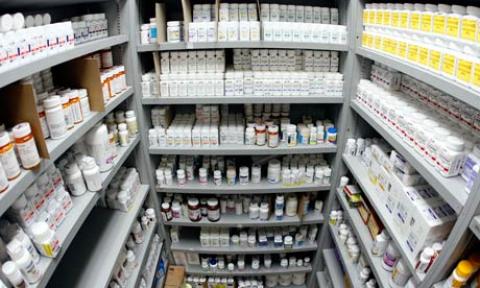Free trade is like apple pie, everyone is supposed to like it. Economists have written thousands of books and articles showing how everyone can gain from reducing trade barriers. While there is much merit to this argument, little of it applies to the trade pacts that are sold as "free-trade" agreements.
These deals are about structuring trade to redistribute income upward. In addition these agreements also provide a mechanism for over-riding the democratic process in the countries that are parties to the deals. They are a tool whereby corporate interests can block health, safety, and environmental regulations that might otherwise be implemented by democratically elected officials. This is the story with both the Trans-Pacific Partnership (TPP) now being negotiated by General Electric, Merck and other major corporations who have been invited to the table, as well as the EU-US trade agreement.
But trade agreements don't have to be designed to make the rich richer. It is possible to envision trade deals that actually would liberalize trade. Nafta and it successors were designed to push down the wages of manufacturing workers by making it as easy as possible to set up operations overseas. This put US steelworkers and autoworkers in direct competition with the low-wage workers in the developing world, pushing down wages of manufacturing workers in the United States, and by reducing the number of manufacturing jobs, the wages of less educated workers more generally.
This is all very simple and straightforward. But suppose that instead of designing trade deals to give us cheaper manufacturing workers we designed trade deals to give us cheaper doctors. In the United States we pay our doctors almost twice as much as the average in other wealthy countries, and almost three times as much as in countries like Sweden or Norway. Suppose we structured a trade deal to get our doctors' pay in line with pay in other wealthy countries.
If we could save an average of $100,000 per doctor, this would translate to savings of roughly $85bn a year, which would come to more than $1tn over the next decade. Throw in dentists and a few other highly paid professions and we would be talking real money. Just the savings on doctors' pay would come to more than $12,000 for an average family of four over ten years. This dwarfs the potential gains that are projected even by supporters of the trade agreements now being negotiated.
But we can be sure that freer trade in physicians' services will not be on the agenda in these trade deals. While the United States brings in Stem workers, nurses, and even teachers from other countries in order to keep their wages down in the United States, no one in a policy position will talk about doing the same with doctors.
The reason is very simple: doctors have lots of money and power. Roughly a third of them can be found in the top 1%, and nearly all would be in the top 3% of the income distribution.
Of course, trade can be used to bring down prices in other areas as well. The United States pays close to twice as much for its prescription drugs as people in other wealthy countries. This is the deliberate result of a patent policy that gives unchecked monopolies to drug companies for decades. In contrast, every other wealthy country couples patent monopolies with price controls, negotiated prices or some other policy that limits the extent to which drug companies can exploit their monopoly.
The United States could simply change its patent policy, but with that route being politically blocked, it could in principle use free trade to bring about the same result. With the country spending over $300bn a year on drugs at present, the potential gains here also could be well over $1tn over the course of a decade.
The industry will claim that lower drug prices will hurt the incentive to develop new drugs, but we can switch to more modern and efficient methods for financing research. By raising prices by tens or even hundreds of times above their free market price, drug patents create the same sort of distortions and waste that we would expect from tariffs of several thousand percent. It's not hard to envision a system that leads to less waste and corruption.
There are many other areas where trade could, in principle, be used to bring about gains for large segments of the US population as well as its trading partners. Unfortunately, we are not likely to see trade agreements that will produce such broad gains. This has nothing to do with trade per se, it has due to with the fact that these trade deals are developed and negotiated by corporate interests for corporate interests.
With the drug companies sitting at the negotiating table at the TPP, does anyone think the deal will actually lower drug prices? Do we expect good rules regulating fracking when the oil and gas industries are writing them? And will the big banks working on the financial section produce good rules for regulating finance?
Yes, free trade can benefit the country as a whole. But the trade deals we will see in the next year have nothing to do with free trade, they are just one more item on the agenda for redistributing wealth upward.


Spread the word